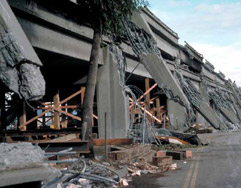A weir is a small dam built across a river to control the upstream water level. Weirs have been used for ages to control the flow of water in streams, rivers, and other water bodies. Unlike large dams which create reservoirs, the goal of building a weir across a river isn’t to create storage, but only to gain some control over the water level. Over time, the term weir has taken on a more general definition in engineering to apply to any hydraulic control structure that allows water to flow over its top, often called its crest. In fact, the spillways of many large dams use weirs as control structures. So how do they work?
–Practical Engineering on YouTube
Tags: hydraulic, Practical Engineering, water flow, weir






 RSS Feed
RSS Feed